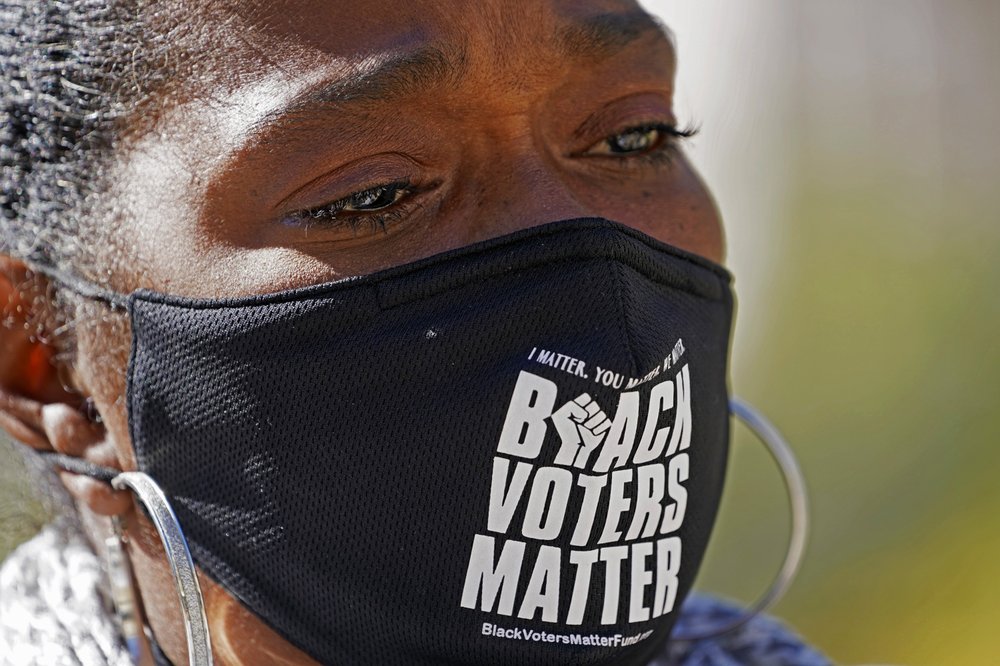Alabama voters reversed themselves from a few years ago and removed racist vestiges of segregation from the state constitution that courts long ago ruled unconstitutional. Rhode Island did a similar a U-turn to eradicate the word “plantations” from the state’s official name.

In this Nov. 2, 2020, file photo, Sharon Brown, co-chair of the Mississippi Poor Peoples Campaign, reacts during a news conference at the state Capitol in Jackson, Miss., over voting concerns statewide. (Photo: AP)
In a year when discussions of racial justice have dominated U.S. society like few others, five states voted to cleanse the public sphere of words, phrases and symbols that to many were painful reminders of the nation’s history of slavery and the systematic oppression of Black people.
Brendan Skip Mark, who teaches political science at the University of Rhode Island, believes the decisions were linked to the revulsion and widespread protests that followed the police killing of George Floyd in Minnesota in May.
“In many ways this has sparked a national conversation on race, and I think we’ve seen a lot of people who are more willing to take concrete steps to address racism than they were in the past,” Mark said.
In addition to the votes in Alabama and Rhode Island, residents of Utah and Nebraska decided to strip their constitutions of unenforceable provisions that allowed slavery as a punishment for criminal convictions. And Mississippi voters approved a state flag without the familiar X-shaped design of the Confederate battle flag.
The votes are a positive sign in a nation where racial tension always has existed, said Stacy Moak, who teaches in the social work department at the University of Alabama at Birmingham.
“Affirmative votes for these changes shows a willingness on the part of Americans to provide for a more inclusive community. These changes, by themselves, are not enough — but they are encouraging signs of progress in the right direction,” she said in an interview conducted by email.
The Alabama measure begins the process of removing Jim Crow language from the 1901 Constitution that was intended to entrench white supremacy. Voters in the mostly white, conservative state had rejected similar proposals twice since 2000.
Courts had previously struck down the legality of the segregationist provisions that were enshrined in the document long ago, but the language banning mixed-race marriage, allowing poll taxes and mandating school segregation remained.
Glenn Crowell, a Black Republican from Montgomery, was among the roughly 67% of voters who supported scrapping those sections.


